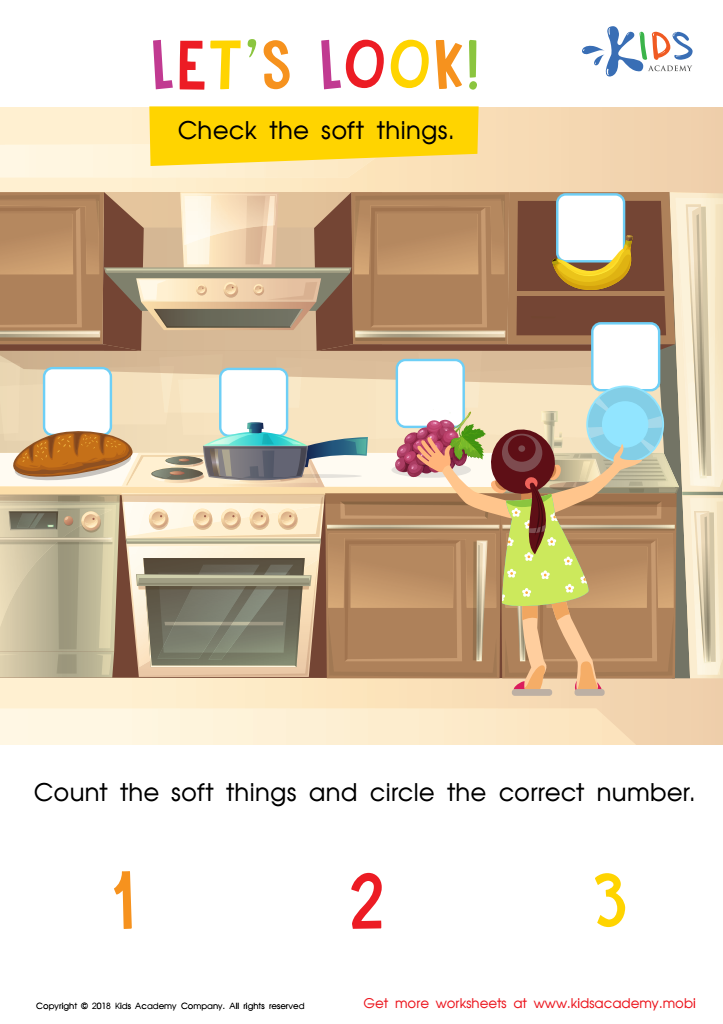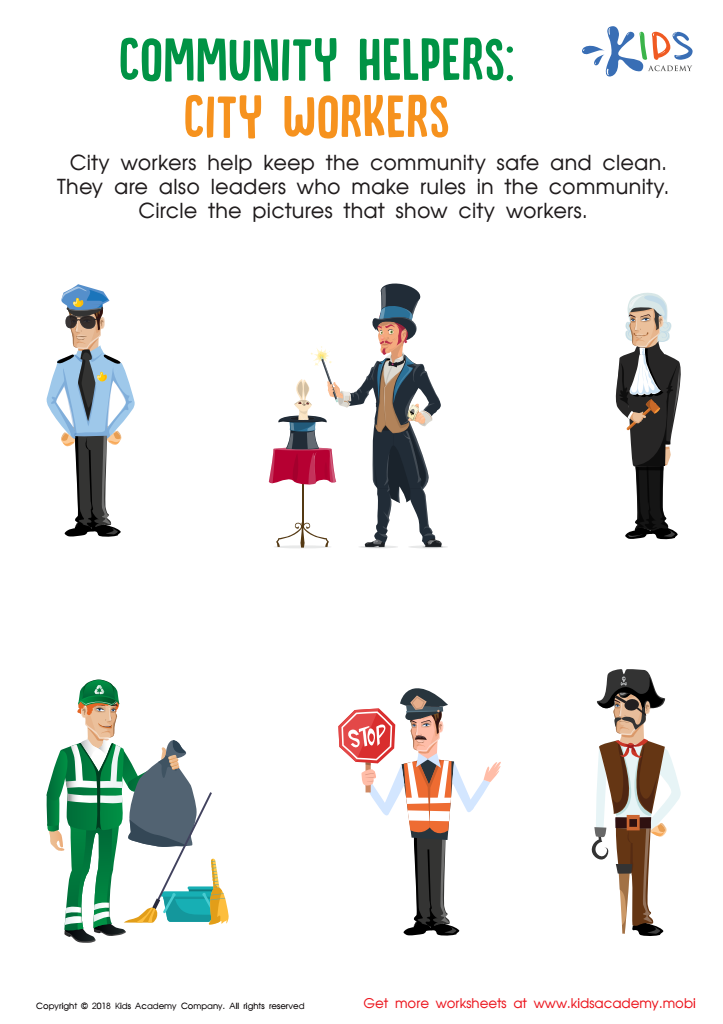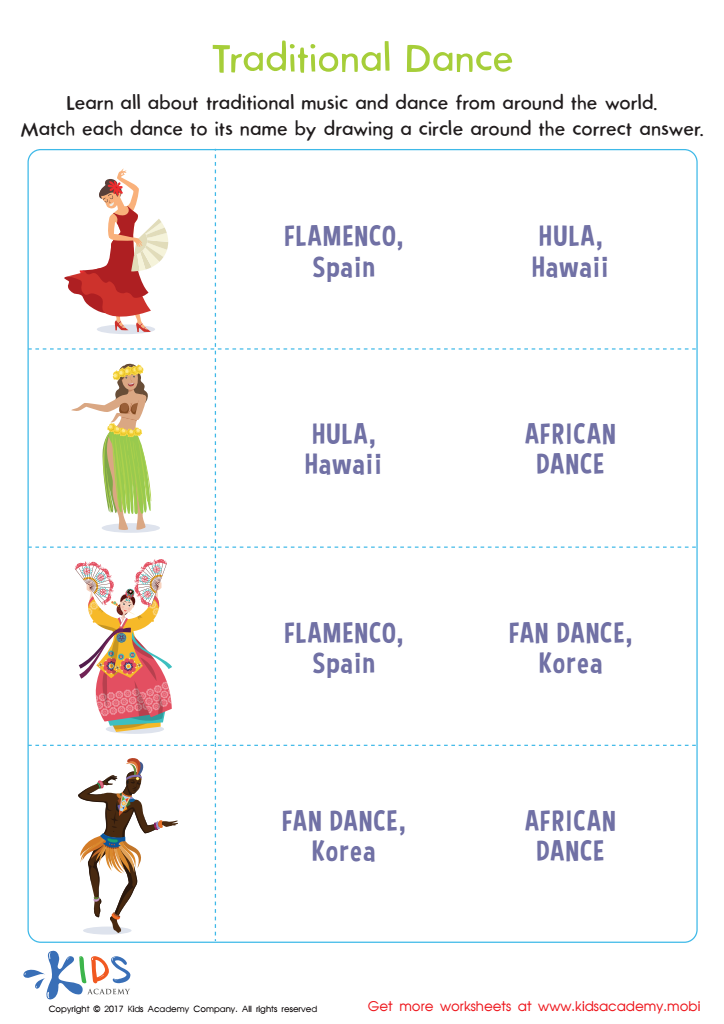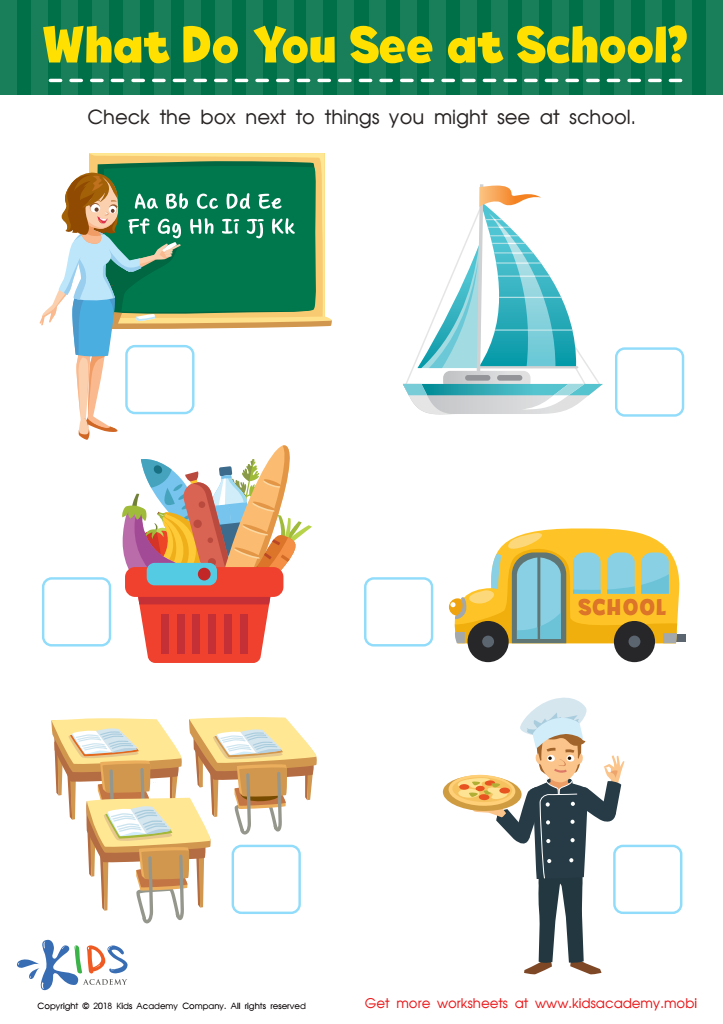Cognitive Development Normal Social Studies Worksheets for 4-Year-Olds
4 filtered results
-
From - To
Discover our Cognitive Development Normal Social Studies Worksheets designed specifically for 4-year-olds! These engaging worksheets support young learners in exploring essential social concepts while enhancing their cognitive skills. Through interactive activities, children will learn about community roles, basic geography, and the importance of relationships with family and friends. Our thoughtfully crafted worksheets incorporate colorful visuals and age-appropriate tasks that promote critical thinking, problem-solving, and decision-making. Ideal for teachers and parents, these resources help lay a strong foundation for future learning and encourage a love for social studies. Start unlocking your child's potential in social awareness today!


Let's Look! Assessment Worksheet


City Workers Community Helpers Worksheet


Traditional Dance Printable


What Do you See at School? Worksheet
Cognitive development is crucial for 4-year-olds as it lays the foundation for future learning and social interaction. Parents and teachers should care about this aspect of development because it significantly influences a child's ability to think, learn, and understand the world around them. At this age, children are naturally curious and begin to engage in exploring concepts of identity, community, and cultural awareness, which are core components of social studies.
Encouraging cognitive development through age-appropriate social studies helps children enhance their problem-solving and critical thinking skills. As they learn about different environments, social roles, and the importance of community, they cultivate empathy and understand diversity, which fosters social cohesion. Cognitive stimulation also promotes language development, allowing children to articulate their thoughts and engage in discussions about societal structures.
In a supportive learning environment, children can make sense of their experiences, boosting their confidence and self-awareness. Research shows that impactful interactions with caregivers and educators during early years can significantly shape a child's academic path, emotional health, and social abilities. Therefore, both parents and teachers play vital roles in nurturing cognitive development through meaningful social studies experiences. Simple activities that involve storytelling, role-play, and key conversations lay the groundwork for a well-rounded education.

 Assign to My Students
Assign to My Students
















